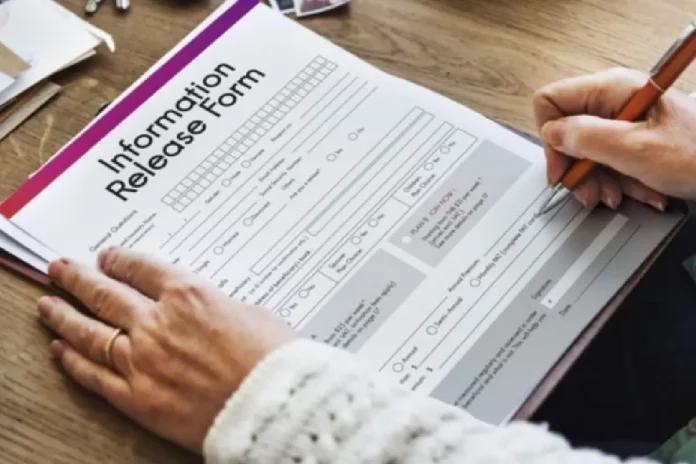Release Of Information Vendor
All HIM units conduct the critical task of outsourcing release of information (ROI). Yet, calculating ROI may be a time-consuming and perhaps dangerous endeavor. When it comes to patient data, healthcare practitioners confront a number of obstacles.
Stress management: It’s stressful to work with people who are already stretched to their limits.
Employee training: Investing in employee training ensures your whole staff is up to speed on HIPAA rules and regulations so you can maximize your return on investment.
Litigation threat: Overcoming the high threat of litigation while accessing data from multiple EHR systems or working with paper-based records to meet ROI requests.
Time constraints: Completing tasks in the allotted amount of time and passing regular information audits to ensure regulatory compliance.
While these obstacles may seem insurmountable, proper procedures and protocols may make information dissemination easier, faster, and safer.
Here are 5 reasons why you may need to sign a release of information form:
Table of Contents
1. To maintain comprehensive care
Any specialist you see after a referral from your primary care physician will require some background on your health situation. If you’re experiencing back pain, the doctor will want to know if this is your first back injury. After you sign a release form, they will have easy access to your medical records. Then they will know what tests to run in order to make a diagnosis and choose a treatment plan.
2. For healthcare invoices
Medical facilities have an obligation to correctly bill patients for services rendered. Let’s pretend the specialist recommended X-rays of your back and decided you needed surgery. The costs of professional consultation, imaging tests, and surgical procedures must be covered. Therefore, the hospital’s billing department will require information regarding the number of X-rays taken, the nature of the procedure, and the extent of your post-operative care.
3. For medical insurance billing
Your health insurance company willcall for the specifics of your medical care after you’ve had it so that it can decide how much of the bill to pay. To give you an idea, you may have to pay 30% of the total cost of the procedure and follow-up care out of your pocket.
4. To evaluate life insurance premiums
The insurance company may ask to check your medical records when you apply for life insurance. This is done so that they can assess the level of risk that you pose to the firm. You can use this information to determine an appropriate premium amount.
Assume you are a woman of 30 years of age with type 1 diabetes. The insurance company for your life will check your medical records to see whether there have been any difficulties. Your life expectancy will be calculated based on the data you provide about your condition.
5. To offer information for medical studies
In order to conduct medical studies and create novel treatments or therapies, academic institutions require access to relevant data. In order for your doctor to disclose your protected health information (PHI) with the researchers conducting a clinical trial for a brand-new drug, you will be required to sign a medical release of information form.
Additional Reasons
1. To provide data for legal proceedings
Lawyers must access patients’ PHI to properly prepare for court procedures, such as medical malpractice litigation. The surgeon botched your back operation, and now you’re paralyzed from the waist down. Your legal representation will require access to your medical record’s PHI. As a result, they will be better able to prove that your current condition directly results from the surgeon’s mistake.
2. For promotional objectives
Medical facilities occasionally use patient testimonials and images in promotional materials. If you were treated successfully for leukemia, the hospital might want to feature your experience in an upcoming advertising campaign. You will be asked to authorize anROI form if you decide to proceed.
HIPAA Privacy Regulations
You have the legal right to view your own medical records under the Health Insurance Portability and Accountability Act of 1996. What’s more, HIPAA rules restrict who can access and receive your medical records. They also demand encryption for electronic PHI (protected health information).
Therefore, medical professionals such as doctors, hospitals, and pharmacies must adhere to stringent rules to safeguard the privacy of patients’ medical records. Equally applicable to health plans, healthcare clearinghouses, and commercial partners like the release of information services that expedite the delivery of medical records is the same rule of thumb.
For instance, the electronic storage, transmission, and reception of your PHI must all be encrypted. In addition, with a few exceptions, they are not permitted to disclose your PHI to third parties without your express consent. Criminal penalties might be imposed on a covered entity by the government for failure to comply with these rules.
You should expect to share your health information at some point. To further understand why a medical release of information can be necessary, consider the following seven scenarios.
Conclusion
With a flurry of rules and regulations to follow and legal ramifications to consider, managing ROI efficiently calls for specialist techniques and solutions. Experts in health IT have built applications and systems that can manage the entire workflow and conduct quality checks.
It’s possible that some HIM officers will argue that they don’t require specialist tools because their EHRs already include Release of Information modules. However, the inherent EHR modules aren’t up to the task of handling the complexities of maintaining disclosure permissions for every facet of a patient’s protected information across all the associated departments.
Lastly, healthcare businesses have a unique set of challenges when it comes to the dissemination of information. Information can be retrieved without breaking any laws if the proper instruments are used.

